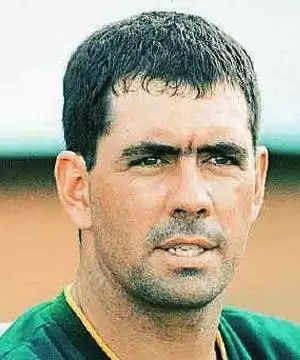Fans of the game watch cricket with hopes that they could one day play for the country or always wishing the best for their team. Players have the responsibility of knowing that they are role models and people who stand for integrity. However, there have been instances when some players have indulged in match fixing, thus ruining their reputations and losing thousands of fans in the process. Here are some cricketers who have been banned for match fixing:
Hansie Cronje:
The ex-South African captain was considered one of the greatest players in their team until he was involved and convicted of match fixing. Cronje was sacked as captain as he admitted that he was “not entirely honest”. Cronje was banned for life and died in a plane crash two years later.
Mohammad Azharuddin:

Probably the biggest name to have been caught match fixing, Azhar was the captain of the Indian team before being banned for life. He had played 99 tests for India and his career came to a complete halt after he was involved in fixing games.
Manoj Prabhakar:

Manoj Prabhakar was one of the most important figures in the Indian team at one point during the 90s thanks to his good bowling abilities. He did not have a long career after he was dropped from the 1996 World Cup. He did try to implicate Kapil Dev and other cricketers but his plan backfired and he was handed a 5-year ban before retiring and getting into coaching.
Herschelle Gibbs:

Gibbs is another player who was found guilty but let off because he did not keep his part of the deal. Herschelle Gibbs was offered $15,000 from Hanse Cronje to score less than 20 runs and he took the money only to go back on his promise. He ended up making 74 and was later only banned for 6 months.
Henry Williams:

Another South African who was in the same ring as Cronje and Gibbs, Williams was offered money to play badly in a game at Nagpur. He however, got injured and did not receive any payment but admitted to having accepted the deal. He was also banned for 6 months for match fixing but never came back to play again.
Marlon Samuels:

Samuels was accused by the Indian Police for having leaked out information of his team and match fixing before a game against India back in 2007. There was a taped conversation that they claimed to have had as evidence against him. He was banned for 2 years in 2008 despite claiming innocence and then resurrected his career post the ban.
Ajay Jadeja:

Jadeja was one of the most popular players in the Indian team back in the 90s thanks to his good fielding and batting abilities. He was however found guilty for match fixing after a CBI inquiry and was banned for 5 years. His plea was dismissed but he was allowed to play domestic cricket later.
Now, he is a commentator on Sony Six’s panel.
Maurice Odumbe:

One of the leading players from Kenya, Odumbe was found guilty of receiving money from bookmakers and match fixing and he was banned or 5 years. After the suspension, Odumbe changed his ways and became involved in social work, helping AIDS victims. He returned after his ban and played domestic cricket.
Salman Butt:

One of the most prolific scorers at one point for Pakistan, Salman Butt was a regular starter but threw it all away after being found guilty of spot fixing. Butt was castigated alongside Mohammad Asif and a young Mohammad Amir after the England series of 2011.
Mohammad Amir:

The brutal pacer was found guilty of match-fixing back in 2010-11 but managed to get only a 5-year ban as he was just 19. He was influenced by the seniors in the squad and bowled a huge no-ball that would get him money from bookies later on. He came back and re-established himself as a top bowler for Pakistan.
Mohammad Asif

Pakistan’s fast bowler was found guilty of match-fixing in 2010-11 along with Salman Bhatt and Mohammed Amir. Asif is regarded as one of the best swing bowlers but his career was cut short because of the spot fixing scandal in England, which ended his and Salman Butt’s career.
Mohammad Ashraful

Bangladesh’s little wonder confessed to match fixing in Sri Lanka Premier League (SLPL). He was banned by his board for 5 years, and he is still serving than ban. The former Bangladesh skipper made a witness statement on May 23, 2013 to the Anti Corruption and Security Unit (ACSU) of the ICC confirming that he had been involved in fixing the SLPL Match between Ruhunu Royals and Wayamba United played on August 26, 2012.
By Rohit Nair

